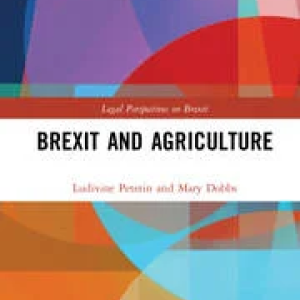
This book looks at how food and agriculture policies have changed across the United Kingdom since its departure from the European Union. It argues that the UK’s four nations could go even further in their departure from the EU’s Common Agricultural Policy, proposing a “resilient agriculture” paradigm based on net zero and agroecology.
Publisher’s summary
Acknowledging the challenges and opportunities raised by Brexit for the agrifood supply chain and agricultural policies across the UK, this book provides the first in-depth analysis of agricultural policy developments across the UK’s four nations rooted in strong theoretical and practical underpinnings.
Arguing that the four nations could be more ambitious in departing from the Common Agricultural Policy and extending beyond the ‘public money for public goods’ approach adopted across the UK, it critiques the core attributes of their policies with focuses including the debate over outcome-based schemes, governance mechanisms, impacts on farm diversity and path dependency on the Common Agricultural Policy and English approaches. It promotes a ‘resilient agriculture’ paradigm and utilises social-ecological services, net zero, agroecology and agri-food democracy as the main pathways to achieve this. In doing so, it scrutinises the evolving contextual, political and legal landscape within which devolved and UK agricultural policies are developing from a multilevel governance perspective, examining the implications of WTO law for the UK and its devolved administrations to determine environmental, food and animal welfare standards under the GATT, the SPS and TBT Agreements and financial support schemes under the Agreement on Agriculture.
The book assesses the significance of the Northern Ireland Protocol, the Trade and Cooperation Agreement with the EU and other free trade agreements for standards across the UK and access to markets. From a domestic perspective, challenges to devolution and the stability of the Union are highlighted. Elements of unilateral recentralisation are visible via financing mechanisms, the UK Internal Market Act and the Agriculture Act.
The book’s interdisciplinary nature makes it of interest to lawyers, political scientists, economists, human geographers and scientists, as well as policymakers, agricultural communities, civil society organisations and think tanks in the devolved administrations, the UK, the EU and beyond.
Reference
Petetin, L. and Dobbs, M. (2022). Brexit and Agriculture. Routledge, Abingdon.
Read more here. See also the TABLE explainer What is food security?












Post a new comment »